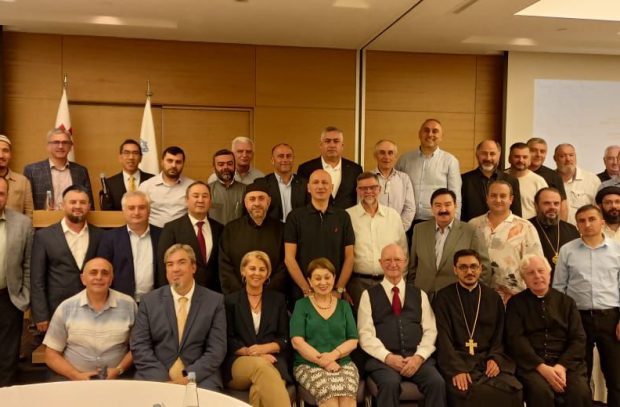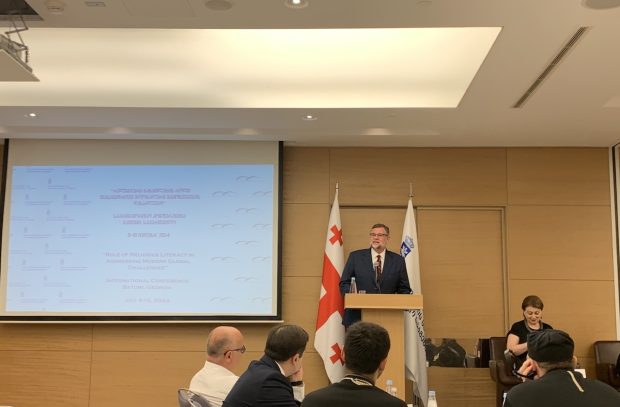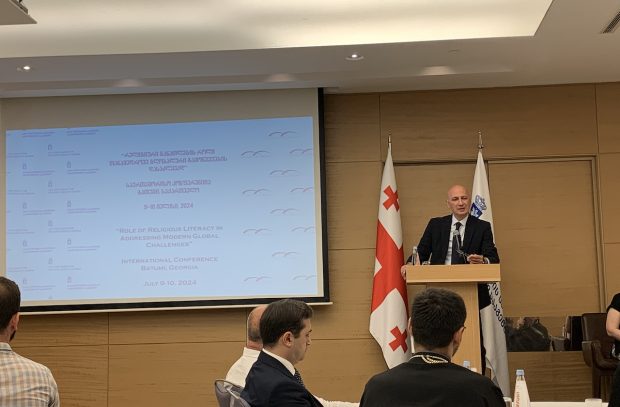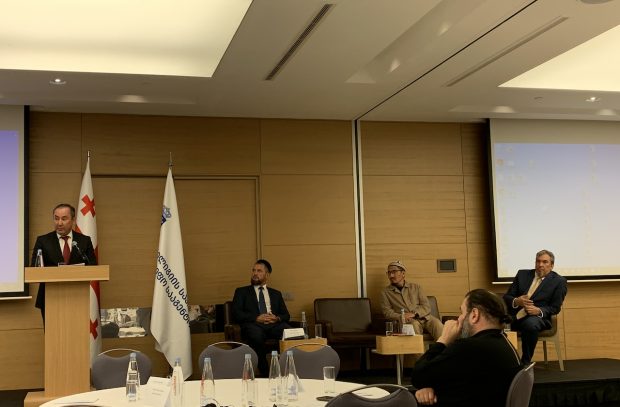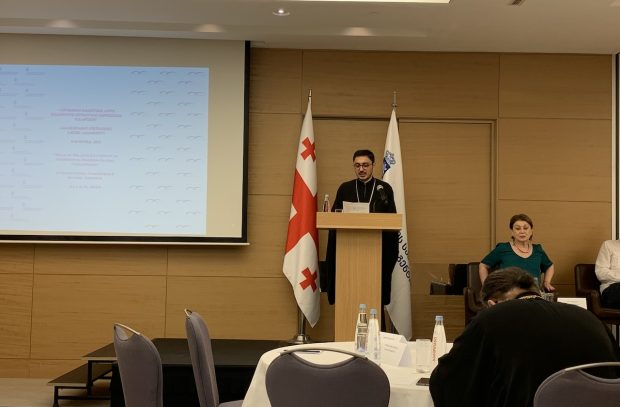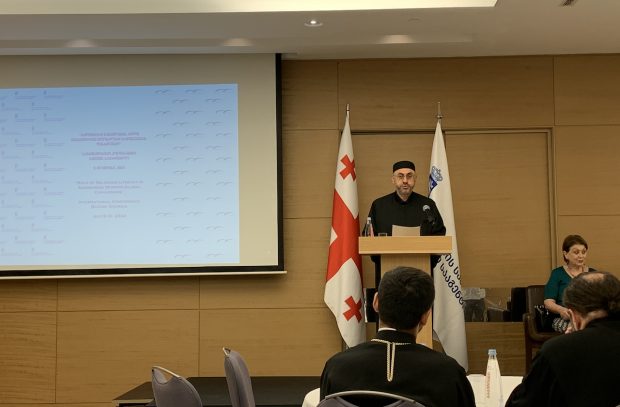IGE Convenes Conference in Georgia on the “Role of Religious Literacy in Addressing Modern Global Challenges”
From July 9-10, 2024, the Institute for Global Engagement (IGE) and the Georgia government’s State Agency for Religious Issues (SARI) co-convened a conference on the “Role of Religious Literacy in Addressing Modern Global Challenges” in Batumi, Georgia. There were 40 participants consisting of representatives from various faith communities including the Georgian Orthodox Church, Muslims, Protestant Christians, Jews, Catholics, and Yezidis. In addition, there were several Muslim imams and Christian pastors from Kazakhstan, Uzbekistan, Armenia, and Azerbaijan. Georgian government representatives in attendance included the Public Defender Levan Ioseliani and an official from the Adjara Autonomous Republic (a political administrative region of Georgia which Batumi is the capitol).
The conference examined how religious literacy could address many of the thorny challenges governments around the world are facing today: extremism and societal polarization. IGE president Bob Roberts presented on multifaith relationship building in the context of countering extremism. IGE senior fellow Dennis Hoover delivered a presentation providing a conceptual overview of cross-cultural religious literacy (CCRL) and its importance in addressing challenges experienced by multi-ethnic and multi-faith societies. IGE senior VP James Chen talked about how CCRL and its relation to social cohesion. IGE senior fellow Wade Kusack moderated a panel of Kazakh and Uzbek imams and pastors who shared about their experiences in building multi-faith relationships between their communities. These tangible case studies provided valuable models of constructive multifaith engagement that is rare in this region.
A SARI official shared that the conference provided a platform for representatives from Georgia’s various religious communities to directly engage the government, including the Public Defender, over any concerns they have. The conference also served as a rare opportunity for multi-faith networking and relationship building between Georgia’s different faith communities.
“This conference took place at a particularly critical time in Georgia since just a month ago there were mass protests in the capital of Tbilisi over the future direction of Georgia’s relationship with the EU and the West more broadly,” James Chen said, “Moreover, Georgia’s South Caucasus neighbors, Armenia and Azerbaijan, have been embroiled in a conflict over territorial claims which recently resulted in the displacement of over 100,000 Armenians. At some level these conflicts are related to how governments manage relationships between different populations that are from ethnic backgrounds or hold different worldviews. Our hope is that this conference was able to provide some helpful ideas and different ways of approaching these issues in this region.”
